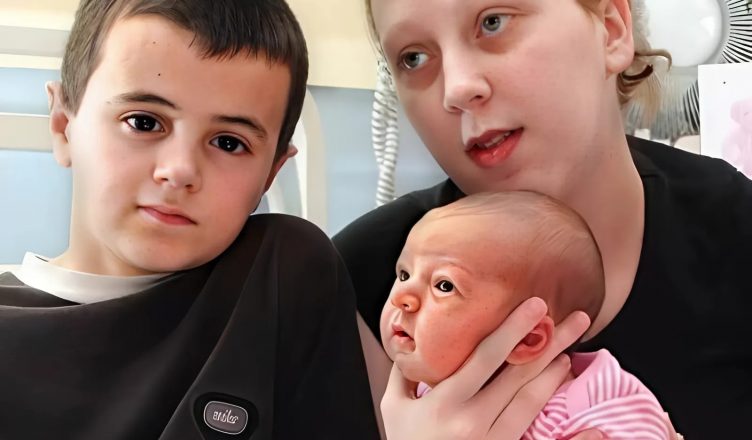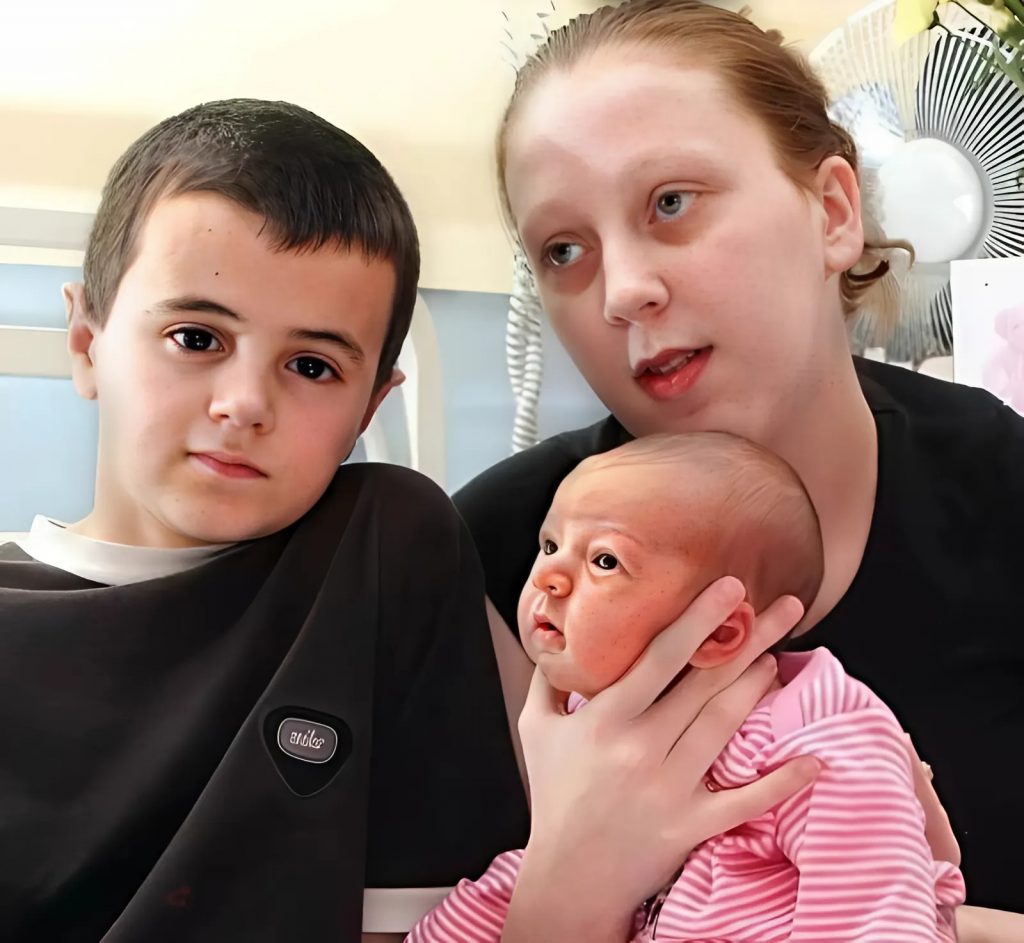A Father at 13: The Story of Alfie Patten and Chantelle Stedman, 16 Years Later

In 2009, the United Kingdom was rocked by a story that quickly spread around the globe: a 13-year-old boy, Alfie Patten, claimed to have become a father. The announcement, accompanied by photos of the baby-faced teenager cradling a newborn, sparked massive media attention and public debate. Beside him stood 16-year-old Chantelle Stedman, the young mother of the child, holding her daughter Maisie Roxanne in a hospital in East Sussex.
The case instantly became a media sensation, not just for the astonishingly young age of the parents, but for the way in which private lives were exposed and consumed by the public. Now, 16 years later, their story continues to evoke curiosity, reflection, and discussion—not only about teen pregnancy, but also about media responsibility and personal redemption.
The Case That Shocked the Nation
When the story first broke, the public reacted with disbelief, moral outrage, and an insatiable curiosity. British tabloids ran the story on front pages, and television news outlets featured interviews, photo spreads, and expert commentary. Alfie, with his soft voice and childlike appearance, became the unwitting face of a national moral panic. He was portrayed alternately as a naive boy caught in circumstances beyond his control and as a symbol of a society in decline.
Alfie’s family initially supported his claim of paternity, painting a picture of a boy trying to do the right thing. However, as the media frenzy intensified, other boys came forward alleging they had also been intimate with Chantelle during the same time period.

The situation reached a new level of controversy when a court-ordered DNA test revealed that Alfie was not the biological father of the baby. The results were made public, and the narrative shifted from scandal to humiliation. The young boy who had been held up as Britain’s youngest father was now mocked and discarded by the same media that had turned him into a household name.
What Happened in the Following 16 Years
Sixteen years later, both Alfie and Chantelle have taken drastically different paths, far from the spotlight that once consumed them. Alfie Patten, now an adult, has lived through a turbulent adolescence. The media exposure had a profound effect on his mental health and sense of identity. After withdrawing from public view, he reportedly took on work in construction and now leads a quiet, working-class life far removed from the chaos of his early teenage years.
Chantelle, on the other hand, has focused on raising her daughter. With the support of her family, she managed to complete her education and build a stable environment for Maisie, who is now a teenager herself. Chantelle has made deliberate efforts to shield her daughter from the media, preserving her privacy and allowing her to grow up without the burden of her notorious early childhood.
Maisie’s upbringing appears to be significantly more grounded than what the public once feared. Today, little is known about her—a fact that should be celebrated. Her mother’s determination to protect her is perhaps the most responsible decision made in this entire saga.
The Psychological Impact of Media Exposure
This story is more than just a tabloid headline. It’s a case study in the dangers of media sensationalism, particularly when it involves minors. The level of exposure Alfie faced at 13 would be difficult for any adult to endure, let alone a child. He became a character in a media narrative, a boy turned symbol, and then cast aside when his story no longer fit the script.
Numerous child psychologists and media ethics experts have since criticized the way Alfie and Chantelle were treated. The obsession with their story blurred ethical lines, ignored their developmental needs, and turned a deeply personal situation into public entertainment.
The story also sparked broader social discussions around sex education, parental responsibility, and the role of the media in shaping public morality. But often lost in those debates was the simple fact that these were children—young people still figuring out their lives, whose mistakes and confusion were amplified for millions to see.
A Lesson for Modern Society
The events of 2009 serve as a powerful reminder of how quickly and ruthlessly modern media can operate. In the pursuit of clicks and headlines, the privacy of children was trampled, and real emotional damage was done. The story became less about teen pregnancy and more about media exploitation.
If today we can look back with a clearer, more compassionate perspective, it is because societal awareness has grown. There is now more dialogue about consent, child protection, and ethical journalism. However, this story still resonates because Alfie’s name continues to be wrongly associated with a title he never truly held: Britain’s youngest father.
This false identity clings to him even now, despite the DNA results and the
RELATED NEWS...
 Top Video Viral
Top Video Viral
